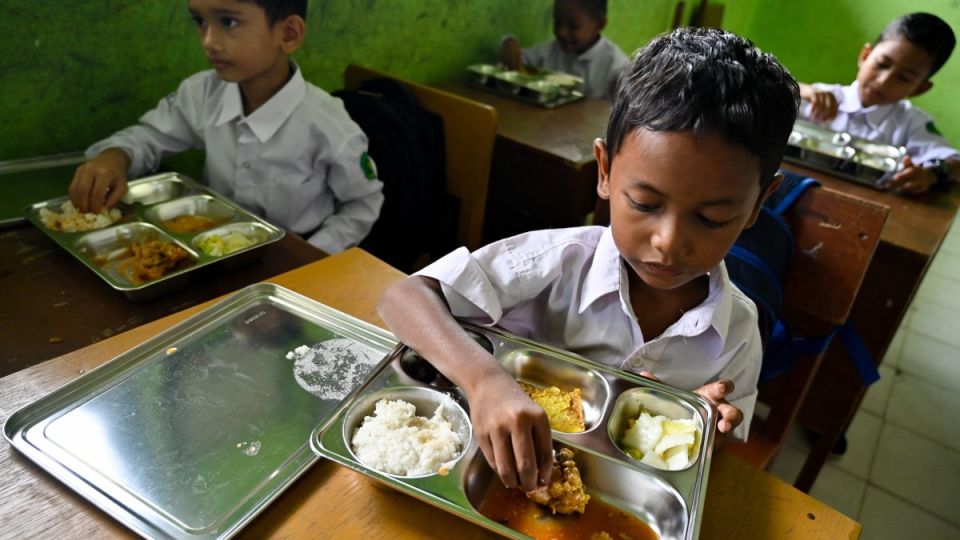October 17, 2025
JAKARTA – President Prabowo Subianto claimed that his target of 8 percent economic growth is achievable, driven by his flagship free nutritious meal and Red and White Rural Cooperatives (KDMP) programs.
He remains optimistic despite Statistics Indonesia (BPS) revealing that the country’s gross domestic product grew only 5.12 percent in the second quarter of this year, while the International Monetary Fund projects growth of 4.9 percent by year-end.
The president said the free meals program, which now operates nearly 11,900 kitchens feeding 35.4 million people daily, has generated strong economic spillovers by connecting local farmers, fishers and food vendors to government procurement chains.
“We [can] create 1.5 million jobs [with the program], that’s 3 percent [additional economic growth], and that’s not even with the 81,000 cooperatives,” he said at the 2025 Forbes CEO Conference on Wednesday.
Prabowo remains bullish on the program despite a series of food poisoning incidents that have marred its rollout in recent months. As of Sept. 30, the National Nutrition Agency (BGN) recorded that 6,457 students nationwide fell ill after consuming meals distributed through the initiative since its January launch.
The BGN, which runs the program, said it had suspended operations at “problematic” kitchens and launched investigations, but stopped short of halting the initiative.
The effort, however, has done little to stem new cases. Just this week, at least 345 students from elementary to senior high schools in Cisarua, West Java, reportedly got food poisoning after eating meals provided under the scheme.
While acknowledging reports of food poisoning, Prabowo said the government had strengthened oversight, introduced stricter sanitation procedures and invested in new kitchen equipment and water filters.
“We are determined to make it as close to zero as possible,” he said.
Prabowo also outlined his government’s rural development drive, including a “Fishing Village Project” aimed at upgrading coastal communities with jetties, cold storage facilities, solar panels and clinics.
He said pilot sites had seen incomes double over the past year, and that 1,000 such villages would be built by the end of 2026 to benefit around 2 million fishers.
Speaking before foreign investors, Prabowo urged them to view Indonesia’s social programs as part of a broader strategy to stimulate growth through stronger domestic consumption.
“When people have money, they buy shoes, clothes, improve their homes, maybe purchase a motorcycle or a television. That’s how the economy grows,” he said.
Prabowo also highlighted his administration’s plan to stimulate the economy through state asset fund Danantara, which currently manages around US$1 trillion in state assets.
He plans to consolidate more than 1,000 state-owned enterprises (SOEs) into around 200 entities and operate them under global business standards.
The government also opened the door for global leaders and expatriates to take senior roles in SOEs, a move he said was meant to bring “the best brains and best talents” into the country’s corporate governance system.
“I’ve changed the regulations. Now expatriates, non-Indonesians, can lead our SOEs,” he said.
The president also cited progress in the Indonesia – European Union Comprehensive Economic Partnership Agreement (IEU-CEPA), describing it as a “wake-up call” to improve competitiveness amid the “US tariff campaign.”
He said Indonesia had also signed a CEPA with Canada, gained full membership in BRICS and was pursuing trade partnerships with Latin American countries while seeking membership in the Organisation for Economic Co-ordination and Development (OECD).


